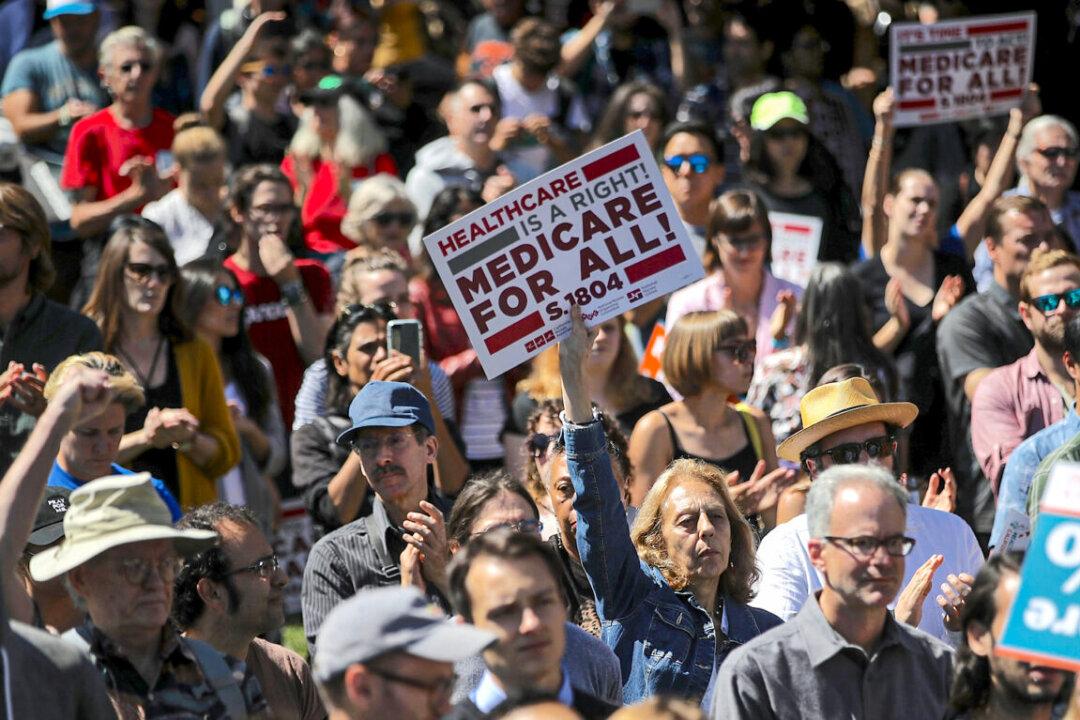California Assembly Republican leader Marie Waldron criticized the state Assembly Rules Committee on Jan. 6 for approving legislation that would create single-payer, government-run universal health care in the state.
Waldron (R-Valley Center) panned the committee, which consists of nine Democrats and three Republicans, for voting to advance a “government takeover of California’s health care system.” The committee is chaired by Assemblyman Ken Cooley (D-Rancho Cordova).





